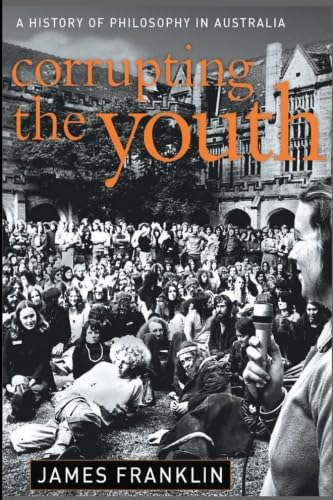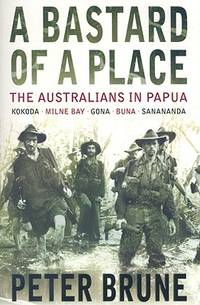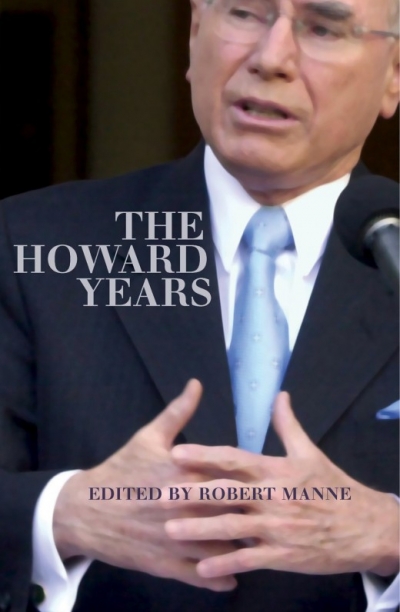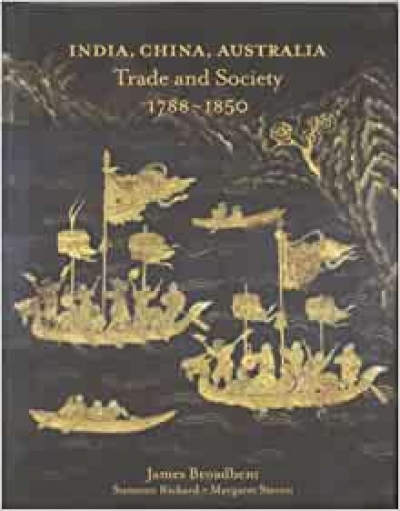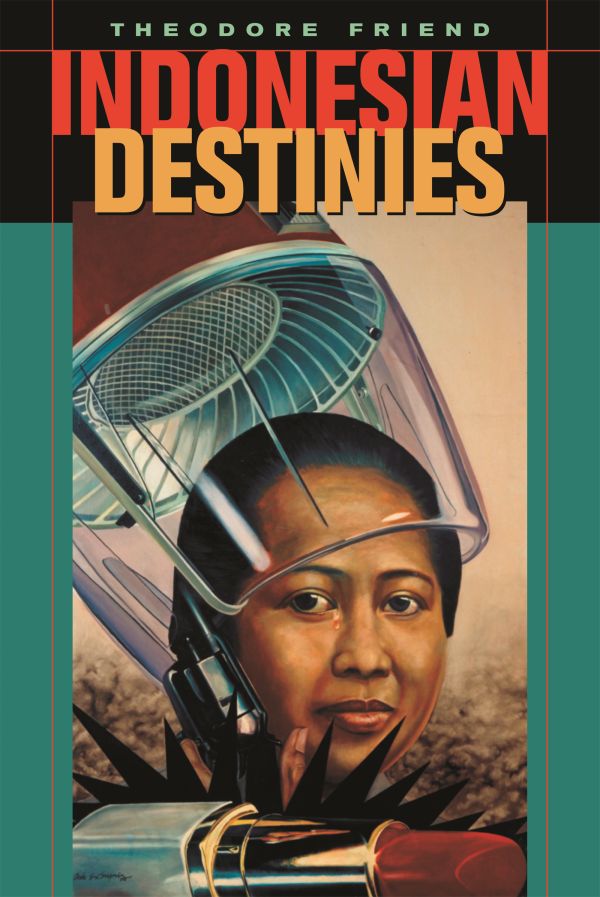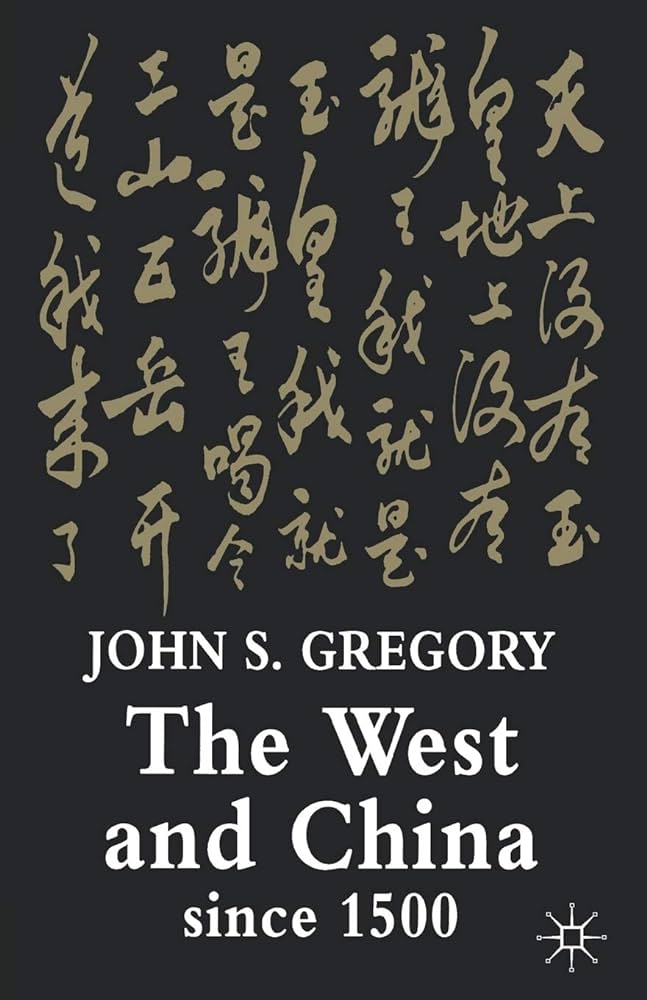History
Corrupting The Youth by James Franklin & The Philosophy Of Sir William Mitchell (1861–1962) by W. Martin Davies
Socrates was executed in 399 BC, charged with refusing to recognise the state gods, introducing new divinities and corrupting the youth. The indictment was probably politically motivated. The philosopher was closely associated with the recently deposed oligarchy led by the murderous Critias, and he had taught Alcibiades, who betrayed the state. Later, Aeschines rebuked the Athenians: ‘You put Socrates the Sophist to death because he was shown to have educated Critias.’
... (read more)A Bastard of a Place: The Australians in Papua by Peter Brune
Japanese troops landed and occupied Lae and Salamaua in north-eastern Papua on 8 March 1942. In an elaborate operation scheduled for early May, the Japanese planned a seaborne invasion of Port Moresby to safeguard their positions in New Guinea and in the Rabaul area, to provide a base that would bring northern Australia within range of their warships and bombers, and to secure the flank of their projected advance towards New Caledonia, Fiji and Samoa.
Countermoves by the US Navy defeated this attempt. Therefore, in June 1942, Lieutenant-General Harukichi Hyakutake’s XVII Army was ordered to gather its divisions from Davao in the Philippines, from Java and from Rabaul, and to prepare for a revised attack on Port Moresby. In a two-pronged approach, one Japanese group would take Milne Bay (south-eastern Papua) by an assault from the sea and advance on Port Moresby along the coast; the other would attack overland from Buna and Gona (northern Papua) along the Kokoda Trail.
... (read more)Do John and Janette choke on their cereal at the name of Robert Manne as they breakfast in their harbourside home-away-from-home? They have every reason to do so. No single individual has provided so comprehensive a challenge to Howard and his ideological claque in the culture wars now raging in this nation. Manne was early to denounce Howard: for his soft-shoe shuffle with Pauline Hanson; for the inhumanity of the government’s approach to the boat people; for the shallow basis for our participation in the Second Iraq War. In the wider war, he wrote a savage critique of the right-wing cognoscenti who assailed Bringing Them Home, and he has rallied the troops to repel Keith Windschuttle’s revisionist history of black–white confrontation in nineteenth-century Australia. Now he has edited this selection of essays, which provides a critical survey of the Howard government across a wide range of its policies.
... (read more)‘Madness’ in Australia: Histories, heritage and the asylum edited by Catharine Coleborne and Dolly MacKinnon
There is burgeoning interest in the history of psychiatric institutions and services in Australia. Catharine Coleborne and Dolly MacKinnon’s ‘Madness’ in Australia now sits alongside Stephen Garton’s Medicine and Madness (1998), Milton Lewis’s Managing Madness (1988) and numerous articles on the subject that have been published in recent years in local journals of medicine and psychiatry. Perhaps this interest represents the desire to record for posterity the role of the asylum and older-style treatments in the care of the mentally ill in the wake of new, cutting-edge national mental health policies and agendas. Possibly, the fascination represents an unconscious, necessarily forlorn attempt to undo, through revisiting, some of the abuses of psychiatric methods in the past. Whatever the reason, one of the problems faced by a slim tome such as this is that mental health services in Australia, since their inception, have been characterised by an extraordinary level of complexity and diversity. To capture their essence in a small, multi-author volume, and to provide a coherent, integrated synopsis, as the editors might have hoped, is probably not achievable. If, however, we are to view ‘Madness’ in Australia with less aspiration – as a collection of essays devoted to different, often novel, aspects of asylums and institutions – then it becomes an absorbing and welcome addition to the literature and furthers our understanding of these grand edifices.
... (read more)India, China, Austraila: Trade and society 1788 - 1850 by James Broadbent, Suzanne Rickard and Margaret Steven
Studies of nineteenth-century decorative arts in Australia have largely focused on objects – furniture, silver, ceramics – produced in Australia for the home market, rather than on a systematic study of imports. The design sources for Australian-made furnishings during the nineteenth century were mostly British; this is also reflected in Britain’s being the principal source of exports to Australia. Given the vast amount of imports from Asia available today – from tableware to mobile telephones, and much of it demonstrating the latest in technology – one could be excused for thinking that our reliance on Asian trade is a twentieth- century phenomenon. Not so. As India, China, Australia: Trade and society 1788–1850 amply demonstrates, our trade with Asia began in the eighteenth century – even ensured the survival of the fledgling port of Sydney – and we have never looked back.
... (read more)A Death in Brazil: A book of omissions by Peter Robb
Australian writer Peter Robb has once again written a whole, complex, foreign society into our comprehension. This time it is Brazil, its myriad worlds of experience, its cruelly stolid immobility and exhilarating changefulness, its very incoherence, somehow made accessible to our understanding. In 1996 Robb’s Midnight in Sicily was published to international acclaim. He had set himself the task like the one the mythical, doomed Cola Pesce had been commanded to achieve: to dive into the sea of the past; ‘to explore things once half glimpsed and half imagined’; and to discover ‘what was holding up Sicily’. And he succeeded magnificently.
... (read more)Anyone who heard Inga Clendinnen’s 1999 Boyer Lectures or who has listened to her in any other way will hear her voice clearly in this book: contemplative, reflective, warm, gently paced. Dancing with Strangers seems to have been written as if it were meant to be read aloud. It reaches out to its listeners ...
... (read more)Indonesia is a difficult place to write about, because of its inherent complexity and the contested views that surround it. And then there is the sheer time that it takes to get to know the place, or at least to begin to know it, or parts of it. No one book can definitively come to terms with Indonesia’s scattered geography and dozens of cultures, its aliran (streams of influence), religious factions, social strata, degrees of development and competing interests. For these reasons, few authors or even edited collections try their hand at Indonesia as such, usually preferring to focus on an aspect of its vast and fragmentary complexity. This has been particularly so in the post-Suharto period, not least with the plethora of edited volumes that have sought to explain rapidly changing events there.
... (read more)Jack Gregory has devoted much of his long career in China studies to teaching and studying the ways in which the West and China have interrelated. He is well qualified to write on the subject. Classes that Gregory has given in Melbourne to students attending University of the Third Age classes have inspired this book. In style and structure, it is highly suitable for teaching. The writing is clear, interesting and accessible. Though the book could have done with some pictures, it does have a map and the presentation is attractive.
... (read more)Australia’s Battlefields in Viet Nam by Gary McKay & On the Offensive by Ian McNeill and Ashley Ekins
For most Australians, certainly for those under the age of forty, ‘Vietnam’ is either an item on school curricula or a slightly off-the-beaten-path tourist destination. History or holiday. This may affront some, especially the small groups on either side of the 1960s cultural and political divide that cannot let go, but it is a sign of a generational shift and of the creation of the distance between ourselves and the event that is necessary for enhanced understanding and reconciliation between Australians and the Vietnamese.
... (read more)
